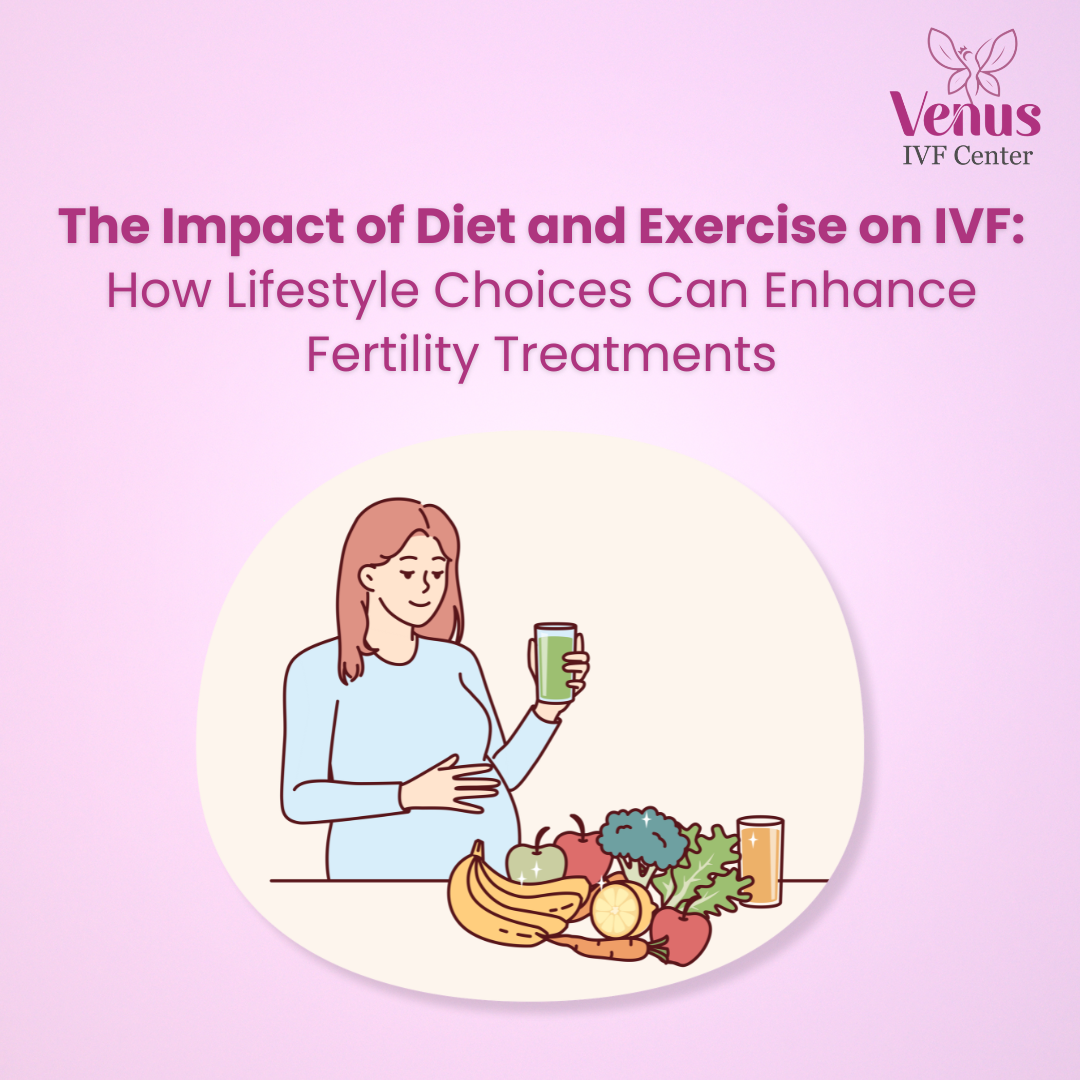

When it comes to fertility treatments like IVF (In Vitro Fertilization), women are often focused on medical procedures and medication. However, one of the most significant factors that can enhance the success of IVF is lifestyle, particularly diet and exercise. IVF is a complex process, and while medical advancements have made it more successful than ever, a healthy lifestyle is essential for improving outcomes. In this blog, we’ll explore how diet and exercise impact IVF, and why fertility treatment and lifestyle are closely intertwined.
By making conscious choices about what we eat and how we care for our bodies, we can increase the chances of successful IVF treatments. Let’s dive into the relationship between IVF success and diet, and why exercise plays such a vital role in fertility treatments.
One of the first steps to increasing IVF success is focusing on nutrition. The impact of diet on IVF success is something that has been widely studied, and the findings are compelling. The right diet can help improve the quality of eggs and sperm, regulate hormones, and ensure that the body is in an optimal state for implantation.
A well-balanced diet that includes healthy fats, lean proteins, and plenty of fruits and vegetables provides the nutrients needed to support the reproductive system. In particular, IVF success and diet are linked to maintaining a healthy weight. Women who are overweight or underweight may face challenges with IVF, as hormonal imbalances can impact egg production and the quality of the embryo.
Specific nutrients such as folate, zinc, and vitamin D have been shown to improve fertility. Folate, found in leafy greens, is essential for healthy cell development, while zinc, found in nuts and seeds, supports immune function and hormone regulation. Vitamin D, primarily obtained from sunlight and fortified foods, is crucial for egg health. Including these nutrients in your diet can help fertility treatment and lifestyle align for a more successful outcome.
While diet plays a critical role in preparing the body for IVF, regular physical activity is equally important. Exercise and fertility treatments go hand in hand, as moderate exercise can help regulate hormones, improve blood circulation to the reproductive organs, and increase overall health.
However, it’s important to find a balance. Over-exercising can have a negative impact on fertility, especially for women who engage in intense physical activity, like marathon running or heavy weightlifting. Excessive exercise can lead to hormonal imbalances and interfere with the body’s ability to conceive. On the other hand, gentle exercises like yoga, walking, or swimming can reduce stress, improve blood flow to the uterus, and even help maintain a healthy weight, all of which support the IVF process.
Moderate exercise can also enhance the body’s response to fertility treatments. Studies have shown that women who engage in light to moderate exercise before and during IVF are more likely to experience successful outcomes compared to those who lead sedentary lifestyles. Diet and exercise impact on IVF success is not just about what you put into your body, but also about keeping it physically fit and healthy.
Incorporating lifestyle changes, such as improving your diet and exercising regularly, can have a profound effect on IVF success rates. Both diet and exercise impact the body’s ability to conceive, and together, they help create an optimal environment for implantation. These changes also improve overall health, reduce stress, and enhance the body's natural ability to produce eggs and sperm.
Women undergoing IVF should aim for a holistic approach to health, incorporating stress management techniques such as meditation, mindfulness, and proper sleep. Emotional well-being is often overlooked, but it is just as important as physical health when it comes to fertility. Chronic stress can lead to hormonal imbalances, which can affect the reproductive system. By balancing diet, exercise, and mental health, you can give yourself the best possible chance at a successful IVF cycle.
While IVF is a medical treatment, the power of lifestyle choices should not be underestimated. Diet and exercise impact on IVF success in ways that are both direct and indirect. By focusing on proper nutrition, maintaining a healthy weight, and engaging in moderate physical activity, women undergoing IVF treatments can improve their chances of success. Alongside medical intervention, a healthy lifestyle plays a crucial role in supporting the body’s fertility potential.
If you’re considering IVF or are currently undergoing treatment, remember that fertility treatment and lifestyle are inextricably linked. Making changes to your daily habits—like incorporating a nutritious diet and regular exercise—can give your body the support it needs for a successful IVF journey. By combining the expertise of your fertility specialists with lifestyle adjustments, you’re setting the stage for the best possible outcome.
If you're preparing for IVF or fertility treatments, consult with an expert at Venus Women's Hospital to receive personalized advice on diet, exercise, and lifestyle changes that can improve your chances of success.